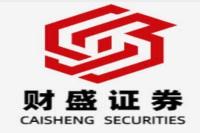Riding the Rollercoaster: A Deep Dive into Hong Kong's Stock Market Fluctuations (SEO Meta Description: Hong Kong Stock Market, Hang Seng Index, Hang Seng Tech Index, Stock Market Analysis, Investment Strategies, Market Volatility)
Imagine this: You're perched on the edge of your seat, watching the numbers on your screen flash wildly. One minute you're soaring high, feeling like a financial tycoon, the next you're plummeting faster than a rollercoaster, heart pounding in your chest. That, my friends, is the exhilarating, terrifying, and often wildly unpredictable world of the Hong Kong stock market. This isn't just about numbers on a screen; it's about real people, real dreams, and real risks. It’s about understanding the nuances of the Hang Seng Index (HSI) and the Hang Seng Tech Index (HSTI), navigating market volatility, and making smart, informed decisions. For years, I've been immersed in this world, analyzing trends, witnessing firsthand the market's dramatic shifts, and helping investors navigate its complexities. This isn't some theoretical lecture; it’s a seasoned perspective built on real-world experience, offering insightful strategies and helping you understand the intricate dance between opportunity and risk in one of Asia's most dynamic markets. We'll unravel the mystery behind the daily fluctuations, explore the underlying factors that drive these changes, and equip you with the knowledge to make well-informed investment choices. Buckle up, because we're about to embark on a journey into the heart of Hong Kong's financial landscape – a journey that could potentially change your investment game forever. Prepare to learn how to decipher the market’s cryptic whispers and turn market volatility into your advantage. This isn't just another market report; it's your passport to smarter investing in Hong Kong. Ready? Let's dive in!
Hang Seng Index & Hang Seng Tech Index: Understanding the Key Players
The Hang Seng Index (HSI) and the Hang Seng Tech Index (HSTI) are the twin behemoths of the Hong Kong stock market, reflecting the health and dynamism of the region's economy. The HSI, a broader gauge, tracks the performance of 50 of the largest companies listed on the Hong Kong Stock Exchange (HKEX). It represents a diverse range of sectors, from finance and real estate to energy and consumer goods. Think of it as the overall pulse of the Hong Kong economy. The HSTI, on the other hand, focuses solely on the technology sector, including giants like Tencent and Alibaba. It’s a more volatile index, reflecting the inherently risky, yet potentially rewarding, nature of tech investments. Understanding the interplay between these two indexes is crucial for any serious investor. Often, movements in the HSTI can foreshadow broader trends in the HSI, offering valuable insights into the overall market sentiment.
For example, a strong performance in the HSTI might indicate investor confidence in the future of technology and, by extension, the broader Hong Kong economy. Conversely, a downturn in the HSTI could signal a more cautious outlook, potentially impacting the performance of the HSI as well. Therefore, keeping a close eye on both indices is essential for informed decision-making.
| Index | Description | Volatility | Sectors Represented |
|----------------------|--------------------------------------------------------------------------------|--------------------|-----------------------------------------------------------------|
| Hang Seng Index (HSI) | Tracks 50 largest companies listed on the HKEX | Relatively Stable | Diverse, including finance, real estate, energy, consumer goods |
| Hang Seng Tech Index (HSTI) | Tracks performance of leading technology companies listed on the HKEX | Highly Volatile | Technology |
The relationship between these two isn't always straightforward, though. Macroeconomic factors, geopolitical events, and even global sentiment can influence both independently. For example, a global tech downturn might impact the HSTI disproportionately, while a local political event might affect the HSI more significantly. This is where careful analysis and a nuanced understanding of the market become paramount.
Navigating Market Volatility: Tips and Strategies
The Hong Kong stock market, like any other, is subject to periods of significant volatility. News events, economic data, and even investor sentiment can trigger dramatic price swings. This can be unsettling for even seasoned investors. But volatility doesn't have to be the enemy; it can, in fact, be an opportunity. The key is to understand it, anticipate it, and develop strategies to navigate it effectively.
Here are some crucial strategies to consider:
- Diversification: Don't put all your eggs in one basket! Spread your investments across different sectors and asset classes to mitigate risk. A well-diversified portfolio can help cushion the blow of market downturns.
- Long-Term Perspective: The stock market is a marathon, not a sprint. Focus on long-term growth rather than short-term gains. Avoid panic selling during market corrections; instead, view them as potential buying opportunities.
- Fundamental Analysis: Don't just follow the herd. Conduct thorough research into the fundamentals of the companies you're investing in. Understand their financial health, business model, and growth prospects.
- Risk Management: Define your risk tolerance and stick to it. Don't invest more money than you can afford to lose. Set stop-loss orders to limit potential losses.
- Stay Informed: Keep abreast of market news and trends. Read reputable financial publications, follow market analysts, and stay updated on geopolitical events that could impact the market.
Understanding Market Sentiment: Reading Between the Lines
Market sentiment is the collective feeling of investors towards the market. It's a powerful, albeit intangible, force that can significantly influence price movements. You can gauge market sentiment through various channels: news headlines, social media buzz, analyst reports, and even the overall trading volume. A positive sentiment often leads to higher prices, while a negative sentiment can trigger sell-offs. Learning to interpret these subtle cues is a crucial skill for successful investing. For instance, a surge in trading volume accompanied by positive news could indicate strong buying pressure, suggesting a bullish outlook. Conversely, a decline in volume alongside negative news might indicate a weakening market sentiment.
Frequently Asked Questions (FAQs)
Q1: Is the Hong Kong stock market a good investment right now?
A1: Whether the Hong Kong stock market is a "good" investment depends entirely on your individual risk tolerance, investment goals, and the current market conditions. It's crucial to conduct thorough research and consider seeking professional financial advice before making any investment decisions. No one can definitively say whether it's a "good" time, as market conditions are always dynamic and unpredictable.
Q2: What are the major risks associated with investing in the Hong Kong stock market?
A2: Risks include market volatility, geopolitical uncertainty (Hong Kong's unique political situation can impact investor confidence), currency fluctuations (the Hong Kong dollar's peg to the US dollar can influence returns for non-HKD investors), and regulatory changes. These risks, however, are not unique to Hong Kong and are prevalent in most global markets.
Q3: How can I diversify my investments in the Hong Kong market?
A3: Diversification in the Hong Kong market can involve investing across different sectors (finance, technology, real estate, etc.), company sizes (large-cap, mid-cap, small-cap), and asset classes (equities, bonds, etc.). Consider using ETFs (Exchange-Traded Funds) or mutual funds to achieve diversification easily.
Q4: What are the best resources for tracking the Hang Seng Index and Hang Seng Tech Index?
A4: Reputable financial news websites (Bloomberg, Reuters, Yahoo Finance), the HKEX website, and dedicated financial data providers offer real-time data and historical charts for both indices.
Q5: Are there any specific tax implications for investing in the Hong Kong stock market?
A5: Tax implications depend on your residency and the specific type of investment. It's essential to consult with a tax advisor to understand the applicable tax rules and regulations. Capital gains taxes, for example, vary based on your location and investment holding period.
Q6: What is the best way to learn more about investing in the Hong Kong stock market?
A6: Start by reading books and articles on investing, following reputable financial analysts and news sources, and possibly considering attending investment workshops or seminars. Remember, continuous learning is crucial in the ever-evolving world of finance.
Conclusion
Investing in the Hong Kong stock market can be both exciting and challenging. The rewards can be substantial, but so are the risks. By understanding the dynamics of the Hang Seng Index and Hang Seng Tech Index, developing effective strategies to manage volatility, and staying well-informed about market trends, you can significantly improve your chances of success. Remember, thorough research, a long-term perspective, and a well-defined risk management plan are essential ingredients for navigating this dynamic and often unpredictable market. Don't be afraid to seek professional advice; a qualified financial advisor can provide personalized guidance based on your specific circumstances and investment goals. The journey into the Hong Kong stock market is a marathon, not a sprint. Patience, discipline, and continuous learning will be your greatest assets. So, buckle up and enjoy the ride!



